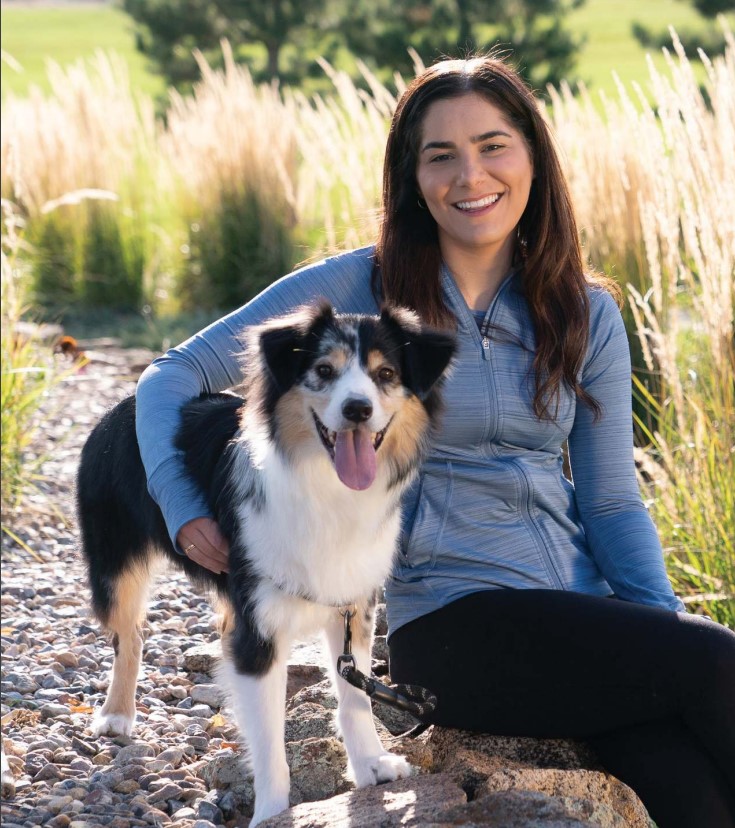Long COVID Odyssey Ends in Recovery
 At one point, Sophia Laderman strategically placed chairs all around her house, including in the shower. Her long COVID symptoms had become so severe that she could hardly stand up without blacking out. She crawled from room to room, and her husband carried her up the stairs of their Denver-area home. “I couldn’t take care of myself,” said Laderman. “At times I worried that I was going to die.”
At one point, Sophia Laderman strategically placed chairs all around her house, including in the shower. Her long COVID symptoms had become so severe that she could hardly stand up without blacking out. She crawled from room to room, and her husband carried her up the stairs of their Denver-area home. “I couldn’t take care of myself,” said Laderman. “At times I worried that I was going to die.”
Before contracting COVID-19 in March 2020, Laderman had been a highly active, accomplished 29-year-old who loved skiing, was vice president of a nonprofit and pursuing her PhD. COVID was difficult, but she recovered after about two weeks at home.
A month later Laderman felt a sharp pain in her chest while running. Then she felt nauseated, out of breath, dizzy and feverish during a tennis match and again at the grocery story. Those episodes started a two-year odyssey with debilitating long COVID. She stopped pursuing her PhD, was confined mostly to her bed and, as one doctor put it, “dropped off the face of the earth.”
In May 2021, Laderman came to the National Jewish Health Center for Post-COVID Care and Recovery, where she saw a multidisciplinary team of pulmonologists, cardiologists and neurologists, as well as physical, speech and occupational therapists. She worked especially closely with physical therapist Kelly Hines, PT, DPT, and Glenn Hirsch, MD, chief of the Division of Cardiology.
“He changed my life,” said Laderman. “Dr. Hirsch actually listened, waited until I was done talking, and then answered all my questions.”
Dr. Hirsch diagnosed Laderman with postural orthostatic tachycardia syndrome (POTS), which causes patients to become dizzy and their hearts to beat furiously when they stand up. He prescribed a beta-blocker medication. “Within 15 minutes I could actually feel I was coming back,” said Laderman. “I was less lightheaded, and I just felt more like myself.”
Over the next few months, Dr. Hirsch and the National Jewish Health team tried a variety of pharmacological and lifestyle therapies to treat Laderman’s ongoing symptoms, which included chest pain, fatigue, brain fog and a lost sense of smell. At one point, she cheerfully reported to Dr. Hirsch that she was feeling 70% better. “He said, ‘That is not good enough. We need to get you as close to 100% as we can,’” said Laderman.
POTS and many of the other long COVID symptoms involve the autonomic nervous system, which controls involuntary functions of the body, from the heart to the liver, bladder and digestive system. Dr. Hirsch prescribed a couple of medications approved for diabetes and neuromuscular disorders that he thought might address the autonomic dysfunction.
“We are ready to try new options if there is some rationale or indication that they might help,” said Dr. Hirsch.
The final step in Laderman’s recovery came when she read a case report in a scientific journal about stellate ganglion block, a treatment that appeared to “reboot” the malfunctioning autonomic nervous system. Dr. Hirsch thought it was worth a try. He coordinated the care and procedure at a local hospital. It worked like a charm, resolving her remaining symptoms. She resumed her full suite of activities and plans to defend her PhD thesis in November 2022.
“My recovery was amazing,” said Laderman. “I feel so lucky and very grateful.”
